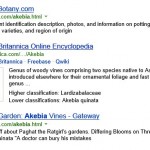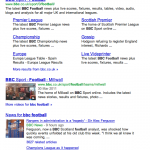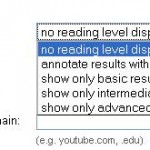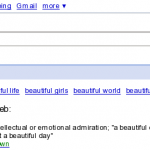Google has taken an advanced step in its search history. It is currently working on a new knowledge graph technology which is claimed to be the future of search.
Google usually returns the search result for any query based on the text and the content. To put it right, it does not understand the exact meaning of the words. It matches the keywords of the query with those of the sites and returns pages that have a significant authority on those words. It may also use ranking signals and word grouping to return appropriate results. But the truth is it cannot go beyond the level of content searching.
Google’s Senior Vice President Amit Singhal outlined that Google has started taking the search beyond mere words into the world of entities, attributes and the relationship between those entities, that is, context searching.
When tracking Google’s history, initially, the search started out with a content based approach. Then the results were provided based on the content links and the authority of those links. Later on, Google developed a heuristic approach to recognize the different kinds of words. Now Google wants to go a step further by transforming the words into appropriate entities with their attributes.
Singhal said, “Google is building a huge, in-house understanding of what an entity is and a repository of what entities are in the world and what should you know about those entities.”
Google, at present, is creating a giant repository of millions of words with their related meanings or entities. People at Google believe that the query can be refined with the help of this enormous knowledge base. The search engine algorithm can be tuned accordingly. The search query with its associated meanings and metaphors can be understood with the help of this knowledge base. Useful relationships among the words can be determined through which the exact result along with necessary detailed information can be returned to the user.
This approach is similar to the functioning of Artificial Intelligence (AI). This is the next level of searching. One can expect Google to answer all the questions directly to the users, knowing his likes and dislikes about the query. It’s no doubt that with the help of the knowledge graph, Google could respond to the user’s query in a manner quite similar to the response of the human brain.
While talking about the knowledge graph, Singhal said, “All aspects of computing or AI improve when you have such an infrastructure in-house. You can process query or question much better, and you get a step closer to building the Star Trek computer.”













Leave a Reply